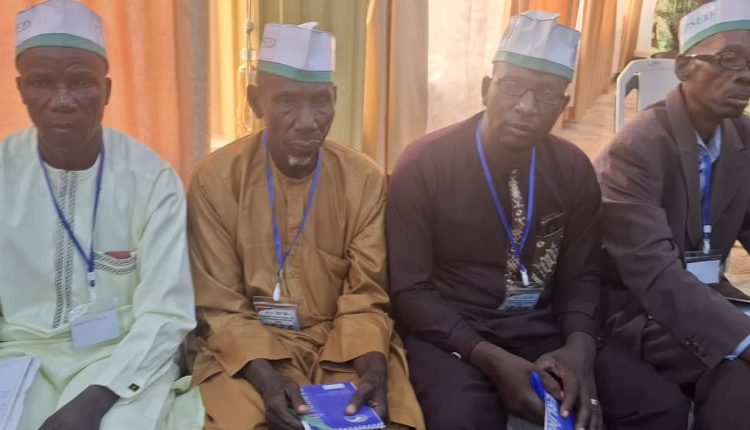Catholic trains religious, traditional leaders on peace, organic farming in southern Kaduna
By Ahmed Ali Usman, Kafanchan
The Justice Development and Peace Caritas (JDPC) of the Catholic Diocese of Kafanchan, in partnership with the Women in Catholic Council, has organized a capacity-building workshop for religious and traditional leaders drawn from communities across Jama’a and Zangon Kataf local government areas in Southern Kaduna.
The event, held in Kafanchan under the second phase of the Community Action for Peace and Socio-Economic Development (CAPSED) project, focused on peaceful coexistence and sustainable agriculture, particularly the use and production of organic manure in ginger farming.
Funded by the Catholic Agency for Overseas Development (CAFOD), the workshop aimed at addressing conflict triggers and promoting agricultural best practices to foster lasting peace and development in the region.
In his presentation, Rev. Dr. James Movel Wuye emphasized the need to address harmful stereotypes and misconceptions that often fuel inter-group tensions. “If we address these issues properly, we can reduce the tendency of hatred and enmity among the diverse ethno-religious groups in our country,” he said. He cautioned participants against engaging in hate speech, warning that it could lead to communal crisis and psychological harm to individuals.
On the agricultural front, Dr. Barak Zebedee delivered a technical session on modern methods of ginger organic farming. He noted that the 2023 farming season exposed the vulnerability of ginger seeds to diseases and encouraged farmers to adopt new, disease-resistant organic practices for improved yield and sustainability.
Earlier, the CAPSED Coordinator, Rev. Fr. Onuh Ladi, explained that the project had already recorded significant impact in its first phase, particularly in strengthening community relations. He said the ongoing training would build on that progress by introducing mental health awareness and promoting alternative dispute resolution strategies.
“Our goal is to empower leaders to act quickly in resolving disputes before they escalate. On agriculture, we are encouraging a shift from inorganic to organic farming practices, especially in ginger production,” Fr. Ono added. He also revealed that participants would replicate the training in their communities through step-down sessions.
Some of the participants who spoke to our reporter expressed appreciation for the training, saying it deepened their understanding of the teachings of both Islam and Christianity on peace and tolerance. They also noted that the session helped debunk certain negative narratives that are not rooted in the authentic doctrines of either religion.



Comments are closed, but trackbacks and pingbacks are open.